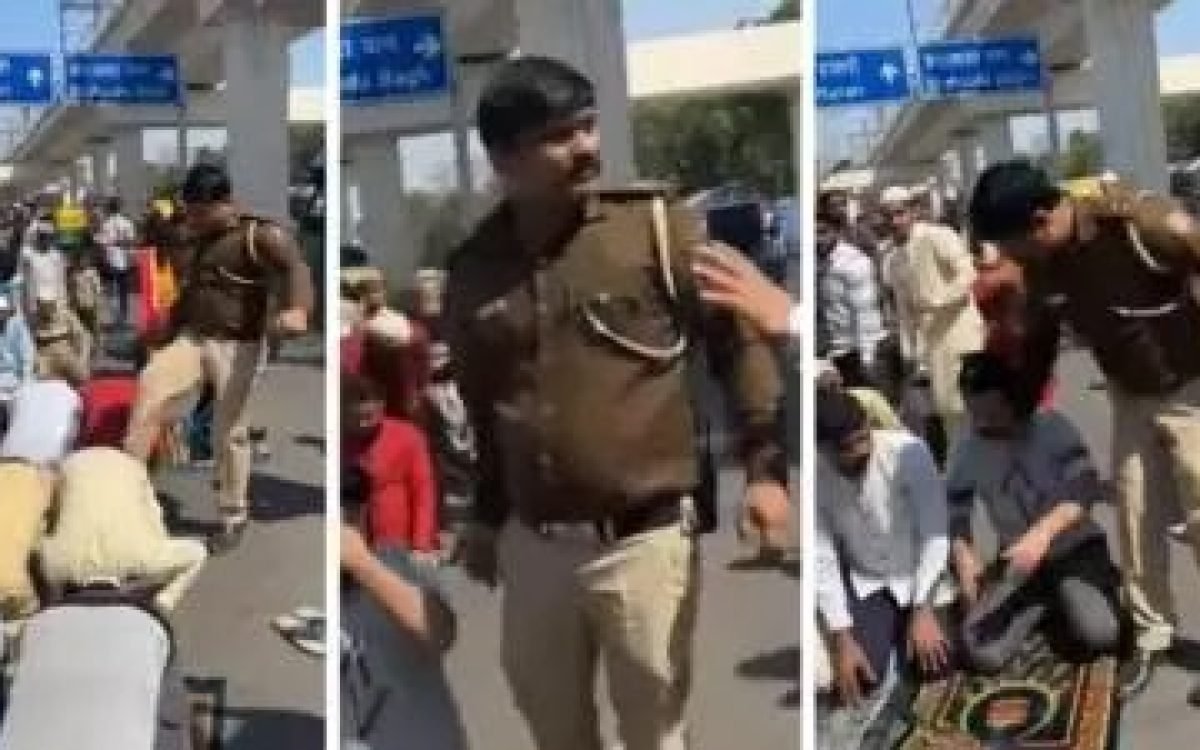A recent incident in Delhi’s Inderlok area, where a policeman was captured on video kicking Muslim individuals offering namaz in a public space, has sparked outrage and drawn attention from a Delhi court. The court, situated in Tis Hazari, has requested a report from the concerned District Commissioner of Police (DCP) regarding the incident, setting May 1 as the date for the next hearing.
The incident, which occurred on a Friday near the Makki Jama Masjid, involved Sub-inspector (SI) Manoj Tomar, who was seen kicking and shoving individuals praying on the road, as well as stepping on their prayer mats. The viral video of the incident prompted swift action, leading to Tomar’s suspension on March 8 and the initiation of a departmental inquiry against him.
However, amidst the uproar over the incident, there were reports of misinformation circulating online, suggesting that a mob had attacked the policeman, which the police later debunked. Journalist and Magsaysay award winner Ravish Kumar, writing in The Wire, highlighted the complexities of the situation, emphasizing that the issue was not solely about causing traffic jams but also reflected broader frustrations and biases towards a particular community.
Kumar’s commentary raises pertinent questions about the treatment of religious practices in public spaces and the selective outrage that often accompanies such incidents. He argues against imposing blanket bans on religious events on roads, pointing out that such measures would disproportionately impact various religious processions and events of Hindus as well.
Furthermore, Kumar challenges the notion that offering namaz or engaging in religious activities in public spaces inevitably leads to traffic congestion or disruption. He draws attention to similar religious practices, such as singing bhajans on trains or chanting slogans on planes, which have been widely accepted without eliciting the same level of scrutiny or outrage.
Ultimately, the incident in Inderlok serves as a reminder of the complexities surrounding religious freedoms, public spaces, and law enforcement in a diverse society like India. As the court awaits the DCP’s report and the inquiry against SI Tomar progresses, it remains essential to address underlying biases and ensure that justice is served impartially.









